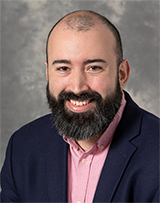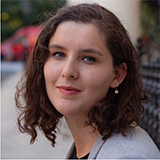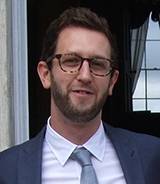
Charlie Barker – Postdoctoral Research Associate
Email: charles.barker.14@ucl.ac.uk
My research is based on developing a mechanistic understanding of the interaction between mutational and non-genetic contributors to Non-Small Cell Lung Cancer progression. To do this I use an array of computational and network-based tools to model complex biological data. The eventual goal of my research is to identify novel therapies that can be tailored to patients based on their mutational background and so improve overall responses to treatment.

Matthew Clarke – Postdoctoral Research Associate
Email: matthew.clarke@ucl.ac.uk
I am interested in computational modelling of gene regulatory networks in cancer, particularly in breast cancer and glioblastoma (GBM). My work focuses on the DNA damage response (DDR) pathway, how mutations cause it to malfunction leading to cancer and predicting treatment effects to find optimal and novel therapies. Beyond treatment response, I am investigating the potential of network models to predict the evolution of cancer and specifically whether we can use gene regulatory network models to predict the order of the acquisition of mutations during tumorigenesis, and the emergence of resistance after targeted therapy.

Tom Cox – Postdoctoral Research Associate
Email: tom.cox@ucl.ac.uk
My research is focused on building a biological executable model of glioblastoma and high-grade glioma, these cancers are known for their aggression, poor prognosis, and a lack of widely available targeted therapies. I am interested in how the DNA damage responses and the driver mutations that differentiate glioblastoma subtypes contribute to tumour resistance or sensitivity to treatment. Therefore my goal is to produce a model able to predict individual patient responses to existing chemo-radiotherapy treatments based on their mutational background, as well as identifying optimal drug targets to increase their treatment response with targeted therapies.

Pedro Victori – Postdoctoral Research Associate
Email: pedro.victori@ucl.ac.uk
My work focuses on the use of computational modelling to tackle triple-negative breast cancer (TNBC), a disease characterised by its aggressiveness and low survival rate. TNBC is also remarkably heterogeneous, and I am interested in how this heterogeneity, along with tumour evolution and architecture confers the ability to resist therapy. Thus, I employ clinical data and executable models of biological networks to stratify tissue states and their potential for state transition and metastasis, which may serve to identify patients that will or will not respond to a given form of therapy. Moreover, in the case of non-responders, I analyse the mechanisms that underpin resistance to treatment, which can inform the development of new therapeutic strategies.

Daniel Holdbrook – Research Associate
Email: daniel.holdbrook@pro-matix.com
In collaboration with Promatix
My role is to integrate Biological Executable Models into Promatix target discovery workflow. By building models, such as one for colon cancer, we aim to identify druggable targets of high importance to the biology of diseased cells. These targets may have characteristics that prevent the cancer from finding an escape to treatment due to their integral nature within key signalling pathways. With an understanding of these key mechanisms, we hope to develop more effective cancer treatments.

Helena Coggan – PhD studentEmail: helena.coggan.21@ucl.ac.uk
Co-supervised with Karen Page and Philip Pearce, Department of Mathematics, UCL
My work focuses on mathematical and computational modelling of clonal evolution in lung cancer. I am particularly interested in how the behaviour of tumour cells is affected by known oncogenic mutations, and in predicting the effects of inter-cellular interactions using evolutionary game theory.

Daniel Jacobson – PhD student
Email: dan.jacobson.15@ucl.ac.uk
Co-supervised with Maria Secrier, Department of Genetics, UCL
My work focuses on applying computational techniques to identify deficiencies in the DNA damage response (DDR) in cancer, and investigating how these deficiencies are involved in driving tumour evolution. This includes studying signatures of genomic aberrations present within the cancer genome, as well as the application of machine learning and network modelling to study dysregulated processes associated with DDR deficiencies. Additionally, I am interested in the role played by the tumour microenvironment and how this is associated with the DDR process.

Francesco Moscato – PhD student
Email: francesco.moscato.21@ucl.ac.uk
Co-supervised with Clare Bennett, UCL Cancer Institute
A multidisciplinary approach to boosting immune surveillance of primary melanoma in the skin.

Carla Castignani – PhD student
Email: carla.castignani@crick.ac.uk
Co-supervised with Charles Swanton & Peter Van Loo, Francis Crick Institute
My work focuses on the reconstruction of epigenomic evolutionary trajectories in lung cancer and to understand how these help drive carcinogenesis. Ultimately, and in collaboration with Jasmin Fisher’s group, I aim to build an integrated model of genomic, epigenomic and transcriptomic histories to obtain more robust evolutionary models.

Jamie Dean – Senior Research Fellow/Junior Group Leader
Email: jamie.dean@ucl.ac.uk
My research interests are in the application of mathematical and statistical modelling to inform improved treatment strategies in radiation oncology.
 Close
Close


